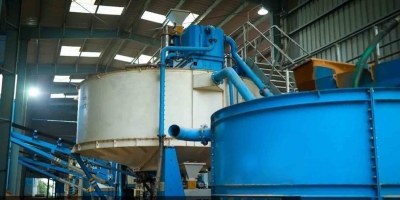New Delhi : , November 20, 2010 : .The National Faecal Sludge and Septage Management Alliance (NFSSM Alliance) has launched “India for the World”, a web-based infographic platform which highlights India’s journey towards FSSM and showcases the credibility of the work of important states toward safe and sustainable sanitation practices.
NFSSM (National Federation for Septic Management) is an Indian collaborative organization that promotes the discussion on faecal waste management and septage management.The group includes 30+ organisations and individuals from India and collaborates with the Union Ministry of Housing and Urban Affairs and Department of Drinking Water and Sanitation, both under the Jal Shakti Ministry.
Launch of the “India for the World” web platform coincided with the “World Toilet Day”, which was celebrated on Friday, this year.
The announcement comes after India’s Swachh Bharat Mission (both urban and rural), where the government, having worked in mission mode, has claimed that 10,61,04,565 (10.61 million) toilets have been built.There has been constant criticism regarding the use of these toilets, for multiple reasons.
These include availability of water, and management of faecal waste or sewage.
The question of FSSM is therefore a topic of constant debate.
Sakshi Gudwani is a member of NFSSM Alliance and a senior programme officer with Bill & Melinda Gates Foundation.She stated that India has made great progress in increasing access to toilets, and now prioritizes treatment of human faecal matter.
Numerous cities and states have found innovative, scalable ways to manage faecal waste and provide inclusive sanitation services.
It is vital that all the lessons learned from India’s progress be documented and shared with other countries and cities in the country.
This will allow them to duplicate the success and help the rest of the world learn from India’s great achievements.Gudwani said that “India for the World” aims to provide a forum for sharing learning about effective FSSM implementations and inclusive sanitation delivery strategies.
60 percent of India’s urban population relies on their onsite sanitation system, and this requires dedicated planning to ensure FSSM.”India for the World” is a resource for urban planners, civic functionaries, elected representatives and state decision-makers.It also provides information for civil society organisations, funding sources, foreign sector players, as well as private-sector actors, funders, and other international players.A statement was made to help you understand the developments and opportunities in FSSM.
It all comes down to finding solutions for the management of decentralised waste faecal in sludge, both in rural and urban areas.
Dinesh Mehta is a member the NFSSM alliance and gave two examples — Wai in Maharashtra and Sinnar.
Both have been granted ODF++ status through the implementation of FSSM Plans.
The plan includes scheduled de-sludging that takes place on a 3-year basis.This is an innovative feature.”Before the city implemented scheduled de-sludging most septic tanks were only de-sludged once every 8-10 years, or when they become completely full and overflowed,” Mehta who serves as the Centre for Water and Sanitation’s Executive Director.
Because households were not responsible for cleaning septic tanks infrequently until they overflowed with water, Mehta stated that this was because the cities had partnered with the private sector to provide a municipal service.
Two towns’ approach is the best because it includes all property, even those living in low-income areas and slums.
This payment is tied to sanitation tax which is part of property taxes and is therefore equitable with low-income households paying less.
SaniTab, or SaniTrack, is a mobile application that captures information on sanitation system performance and monitors the performance of private sector providers.The scheduled services are still being delivered.
Mehta stated that both cities have established dedicated faecal treatment facilities.
The septage collected is then treated, and by-products can be reused to plant trees and create urban forests for women’s self-help groups.
niv/khz/
#toilet #faecal #waste #Delhi







